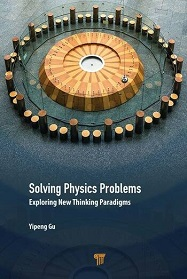Solving Physics Problems Exploring New Thinking Paradigms
Material type: TextLanguage: English Publication details: Singapore : Jenny Stanford Publishing, c2022Description: XXI, 784 p. : illISBN:
TextLanguage: English Publication details: Singapore : Jenny Stanford Publishing, c2022Description: XXI, 784 p. : illISBN: - 9789814877411
- 530.071 GUY
| Item type | Current library | Shelving location | Call number | Copy number | Status | Date due | Barcode |
|---|---|---|---|---|---|---|---|
 Reference Collection
Reference Collection
|
Reference Section | Reference Section | 530.071 GUY | 2022-23 | Available | 97914 |
summary:
This book provides a complete, consistent, and open system for studying physics problems, which not only provides high-quality teaching materials for the field of physics education (especially for Physics Olympiad training) but also points out a new direction for physics education. In this book, a form of methodology, which can comprehensively present cogitation discipline, is built up for analyzing and solving complex physics problems. The text analyzes plenty of physics problems (classical mechanics) from both theoretical and philosophical points of view to reveal the way of exerting this form. As a set of methodology reflecting the cogitation discipline, the thinking paradigm proposed in this book (called the MLQ-(ST)C paradigm) is a theoretical tool to develop people's acquisition of this ability. The paradigm successfully deconstructs the elements and the structure in physical thinking and then eliminates the obstacles of people’s underlying thinking, so that all the thinking built on it can be clear and ordered. The physics problems included in this book are significantly more difficult than similar books within the same theoretical domains involved, leading to better teaching and learning value.
